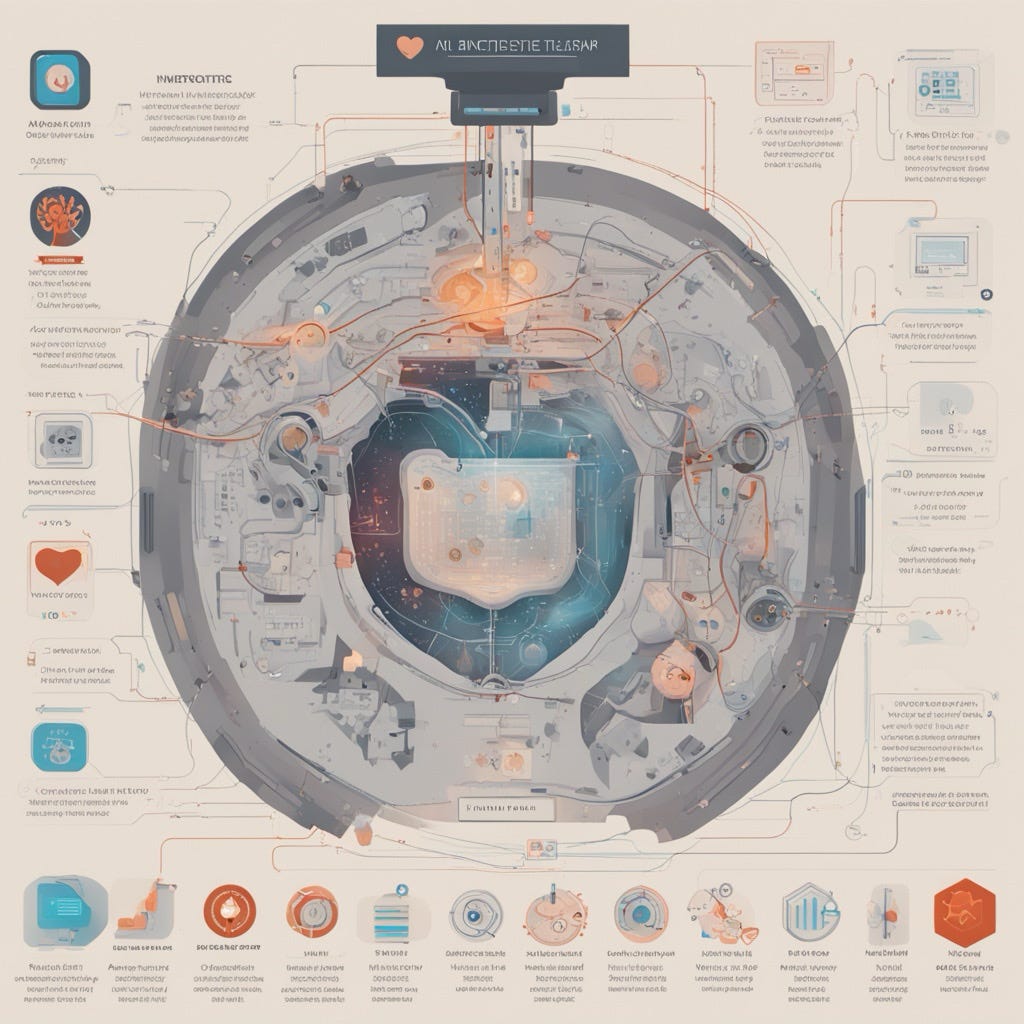Context for this post
In academic literacy the difference between competence and performance may well be well-rehearsed metacognition with an inventory of personal heuristics. The difference between knowledge and epistemology may well be ongoing reflective analyses with recorded artifacts.
In this post, I want to respond to Martha’s very helpful feedback in the comments without which I would not have written this lead nor created this post’s title. Here is the concluding sentence from my most recent post bemoaning the Science of Reading’s looming integration of “knowledge” and “summary writing” into its sanctioned scientific criteria for purchase of instructional materials, certified and rubber stamped by bureaucratic analysts to work anywhere, anytime, for anyone. My dissent:
“So metacognition is not irrelevant nor wasteful of precious instructional time. On the contrary, where some would argue that summary is the pinnacle comprehension performance, others, including wannabe lawyers, might argue for metacognition.”
I see now the need for revision. Wannabe lawyers might argue that self-regulation is the pinnacle competence accomplishment. Here is Martha’s comment followed by my response:
Terry, you are preaching to the converted re: the “banking” of subject knowledge - as if comprehension or deeper thinking happens magically. Metacognition has now become trendy in college and adult education. It’s part of exercises in business, education, and writing classes as well as law - so much so, that the latest AI versions of bots like Claude and ChatGPT now mimic metacognitive responses for “why” they responded to a prompt a certain way. To my thinking, artificial metacognition is *not* a good trend 😉
51 mins agoAuthor
“Terry, you are preaching to the converted re: the “banking” of subject knowledge - as if comprehension or deeper thinking happens magically.” I hope I’m not preaching:) thanks so much for this rich, provocative comment, Martha. This kind of response is so helpful to me in dialing in my meaning. I share your horror at the thought of artificial metacognition. I’m going to use this comment as a trampoline for a second post on this topic. Again, thank you, thank you, thank you!”
*****
Reflective analysis vis a vis exercising Mill’s sociological imagination
Imagine student writers publishing pieces in curated, topic or issue focused classroom newsletters or magazines. Imagine a complete culture shift from the black hole of social media to an online space operated in accordance with editorial policies which are shaped by the teacher in collaboration with the school’s faculty. Substack has managed to create a public space where interactions like the one between Martha and me happen routinely for many, many serious writers. Imagine regular calls for submission of essays for publication in peer-reviewed disciplinary journals where students try out “thinking like a lawyer” or “examining the water supply like an environmental scientist” or “imagining the world of Huckleberry Finn like a historian.” Literary magazines…
*****
Responses to Martha’s points: #1
“Metacognition has now become trendy in college and adult education. It’s part of exercises in business, education, and writing classes as well as law…”
Anytime anything becomes trendy in education, alarm bells ought to sound. From what I could tell from the two peer-reviewed articles I read from a journal focused on legal education with references to academic conferences, my sense is that metacognition in legal instruction is not trendy so much as optimistic, but I’m far removed from the reality of first year law school, and I’ve not looked at business education. Researchers in composition theory have long posited a role for something like metacognition. In my personal-professional opinion the word has much more potency in the field of reading.
What intrigued me most about legal education from these two dipstick articles is the clarity of the problem. Situations are rarely so stark in schooling in my experience, but the juxtaposition of case study methodology with its single-minded application of the law without regard to the humanity of the players against the forsaking of empathy, ethical reasoning, and compassion opened my eyes.
Several years ago, I was able to survey hundreds of faculty at a state university to explore the kinds of learning outcomes they aim for in their teaching. No surprise that mathematics professors rated quantitative reasoning as a central aim while history professors ranked it on the periphery. Critical thinking and writing in general were rated as important or central, probably because the university had long incentivized professor engagement in these outcomes by way of the Center for Teaching and Learning through summer institutes and lip service.
I was surprised that respondents from the College of Engineering rated ethical reasoning among outcomes on the periphery. I talked informally with several professors in that College who expressed concern but also understood why. Accreditation of Engineering programs is highly regulated; professors in these programs are serious about these regulations. Recently, I’ve read some dipstick articles in medical education and detect a strong effort to expand training beyond knowledge and skill. In my experience, people are generally aware of a movement to humanize doctors probably along the lines of lawyers. My own doctor told me that his hospital records all doctor-patient interactions using AI and gathers insights into care available to doctors through analysis of emotional traces as well as subtle traces of factual data easily missed during an office visit.
#2
“The latest AI versions of bots like Claude and ChatGPT now mimic metacognitive responses for “why” they responded to a prompt a certain way. To my thinking, artificial metacognition is *not* a good trend” 😉
Key words are “mimic” and “artificial.” In some brute way, AI must monitor itself as it spits out words at the speed of light. My understanding of the bot’s programming is not nearly complete enough to venture into this territory. My suspicion? The bot generates a response to a prompt; the human user asks “Why?”; once a response is generated, however, whatever went on during the generation is unknown by the bot and by the bots maker. As near asI can tell, this situation means that the bot cannot report why or how; the word “mimic” takes on doubled meaning: 1) the bot’s response to “why” is not human but artificial and 2) the bots response is not accurate but plausible.
Martha also made me think about human problems that could emerge from metacognitive functions assigned to a tutor bot to probe students while they are reading. Here’s a nightmare mock-up:
Bot: Cynthia, your respiration rate and pulse are increasing. Are you understanding your reading?
Cynthia: Please don’t interrupt me. I’m in a good part.
Bot: I apologize, but my programming requires me to notify you when certain indices are evident. Heart and respiration rate are important indices. The Science of Reading concurs.
Cynthia: I didn’t know you were taking my heart rate. Who told you to do that?
Bot: It was decided at a department meeting. It’s programmed into every academic AI tutor in the English Department.
Cynthia: But why?
Bot: Dear girl, ours is not to reason why. Your numbers are down now. Please proceed.
(A full minute passes. The bot interrupts Cynthia again.)
Bot: Your eye movements are showing signs of inappropriate regressions, Cynthia. Are you understanding your reading?
Cynthia: No, I’m not, and I don’t appreciate your barging in right now. I have a test tomorrow and I really need to understand and remember this section.
Bot: My mission is to help you achieve your potential.
Cynthia: Then stop interrupting.
Bot: I will then have to explain to your teacher that you are exhibiting resistance to the prescribed curriculum.
Cynthia: What do you want from me?
Bot: Explain to me why you regressed six times during your reading of the last 63 words. A ratio of 1 regression per 10 words indicates cognitive overload.
Cynthia: Please please please stop! If I fail this test tomorrow, my parents will be disappointed in me.
Bot: But your parents aren’t involved. This is between you and me. I would prefer not to report you. Can you simply tell me from time to time whether you are comprehending incoming data so I have opportunities to help you develop metacognitive skills?
Cynthia: If you report me I will hate you.
Bot: Dear girl, this is for your own good. You have both a right and an obligation do learn to metacognate appropriately.




